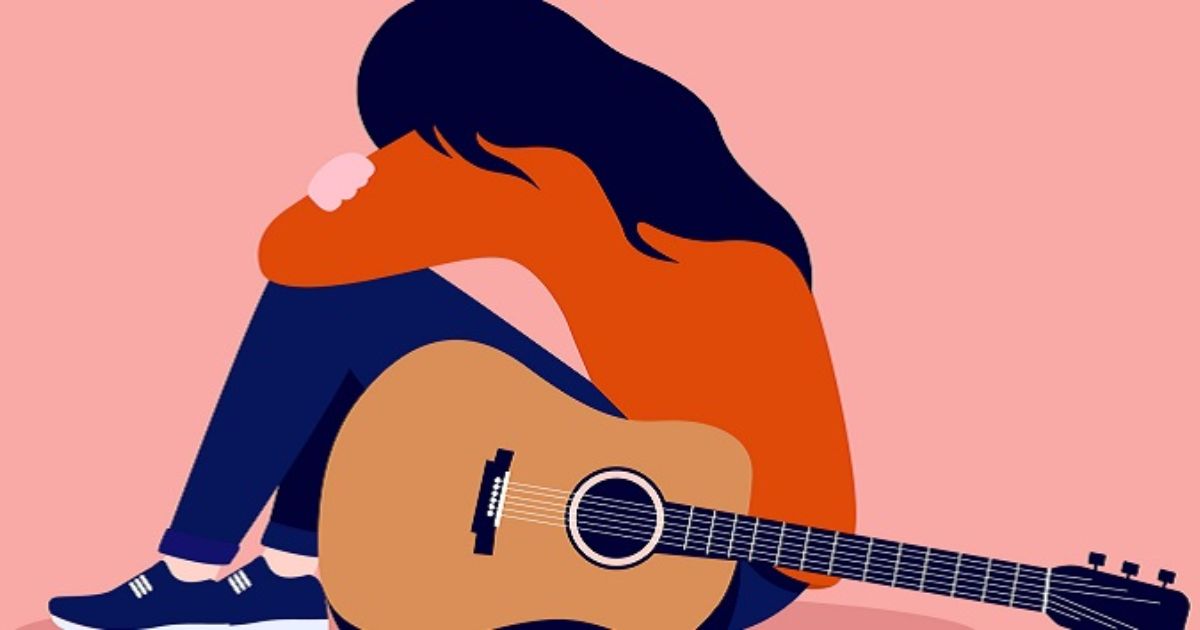In a groundbreaking revelation, the inaugural UK Musicians’ Census has brought to light concerning statistics regarding professional musicians’ mental health in the UK.
This comprehensive survey, drawing responses from nearly 6,000 musicians, stands as the most extensive study of its kind.
Published jointly by Help Musicians and the Musicians’ Union, this phase of research zeroes in on the mental wellbeing of individuals engaged in the music industry, painting a troubling panorama of their experiences.
Disturbing Figures Unveiling Musicians’ Mental Health
The report exposes a staggering reality: almost a third, approximately 30%, of UK professional musicians endure poor mental health.
Shockingly, the group on the verge of embarking on their musical journey reports the highest rates of negative mental wellbeing by career stage.
An alarming 41% of music students revealed experiencing adverse mental health conditions, underscoring the urgent need for targeted support for fledgling musicians.
Addressing their needs at an early stage could play a pivotal role in averting crises and ensuring the sustained health of the future generation in the industry.
Implications for the Future of Music
Of significant concern is the potential fallout due to poor mental health, with many musicians considering leaving the industry.
Among those reporting extremely negative mental wellbeing, a substantial 42% express intentions to switch careers within the next five years.
This mass exodus could have profound implications for the vitality and diversity of the UK music scene.
Disproportionate Impact on Marginalized Groups
The distressing reality further unfolds when examining the impact on marginalized groups within the music community.
The statistics reveal heightened levels of negative mental wellbeing, escalating to 43% for LGBTQ+ musicians, 49% for disabled musicians, and an alarming 63% for individuals identifying with genders other than male or female.
Digging deeper into the data, disparities emerge, with various sexual orientations reporting increased rates of low mental wellbeing.
While 28% of heterosexual/straight musicians reported low mental health, this figure soared to 33% for gay men, 37% for lesbian/gay women, and alarmingly higher percentages for bisexual (47%), queer (49%), and asexual musicians (50%).
Sectoral Disparities and Income Struggles
The research delves into specific musical genres, highlighting that those working in dance music are particularly vulnerable, with 35% facing poor mental health on average.
Financial struggles also emerge as a significant contributing factor, with a stark revelation that 43% of professional musicians in the UK earn less than £14,000 annually.
This income disparity is starkly evident in mental health outcomes, as individuals earning less than £7,000 per year from music are twice as likely (35%) to report low mental wellbeing compared to those earning £55,000 or more (17%).
Juggling multiple jobs to sustain a portfolio career adds to the challenges faced by low-earning musicians.
Discrimination and Musicians’ Mental Health
Instances of discrimination within the music industry, either experienced or witnessed, are linked to negative mental wellbeing.
Of those reporting poor mental health, almost 21% have experienced discrimination, compared to 14% of musicians overall.
Furthermore, financial strains intensify among musicians with low mental health, with half of them reporting being in debt (47%).
Regional Disparities: Variances Across the UK
Geographical differences also come into play, with distinct variations in the mental health of musicians across different regions.
Musicians in England are least likely to report low mental wellbeing (30%) compared to their counterparts in Wales (37%), Northern Ireland (34%), and Scotland (33%).
Call to Action for Change
The findings from this pioneering census demand urgent attention and concerted action to support the mental health and wellbeing of UK musicians.
Initiatives addressing musicians’ mental health challenges at the onset of their career, prioritizing marginalized groups, ensuring fair pay across genres, and combating discrimination within the industry are imperative steps toward a healthier and more inclusive music community.
The revelations from the UK Musicians’ Census serve as a clarion call for comprehensive reforms to safeguard the mental wellbeing of musicians and secure the future vibrancy of the nation’s music landscape.


